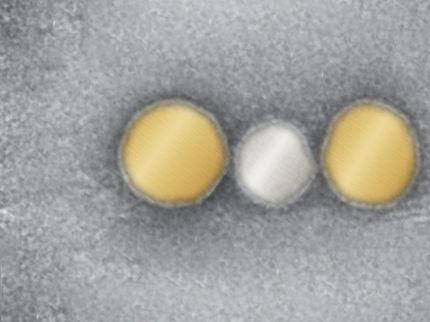Buried silver nanoparticles improve organic transistors
Advertisement
Out of sight is not out of mind for a group of Hong Kong researchers who have demonstrated that burying a layer of silver nanoparticles improves the performance of their organic electronic devices without requiring complex processing. Their findings in a report published in the journal Applied Physics Letters, which is published by the American Institute of Physics (AIP).
A team led by Professors Paddy Chan and Dennis Leung of the Hong Kong Polytechnic University has shown that a simple layer of silver nanoparticles placed between two layers of the organic semiconductor pentacene improves performance just as much as painstakingly placing nanoparticles atop a tiny floating gate region.
Because certain metal nanoparticles trap electric charges very effectively, they are becoming a popular additive for enhancing transistor performance and producing thinner transistors. Sandwiching a layer of nanoparticles is much more compatible with the low-cost, continuous roll-to-roll fabrication techniques used to make organic electronics than the more intricate patterning required to put material just in the transistor gate area.
Moreover, Chan's group showed that the thickness of the nanoparticle layer changes the device performance in predictable ways that can be used to optimize transistor performance to meet application requirements.
Transistors made with a 1-nanometer nanoparticle layer, for example, have stable memory that lasts only about three hours, which would be suitable for memory buffers. Transistors having a 5-nanometer-thick layer are more conventional and retain their charge for a much longer time.
"We believe that organic memory has a very high potential for use in next-generation memory devices -- such as touchscreens and electronic paper -- where their flexibility and low-cost are most important," said Dr. Sumei Wang, a postdoctoral research fellow of the team.
Other news from the department science

Get the chemical industry in your inbox
By submitting this form you agree that LUMITOS AG will send you the newsletter(s) selected above by email. Your data will not be passed on to third parties. Your data will be stored and processed in accordance with our data protection regulations. LUMITOS may contact you by email for the purpose of advertising or market and opinion surveys. You can revoke your consent at any time without giving reasons to LUMITOS AG, Ernst-Augustin-Str. 2, 12489 Berlin, Germany or by e-mail at revoke@lumitos.com with effect for the future. In addition, each email contains a link to unsubscribe from the corresponding newsletter.




























































